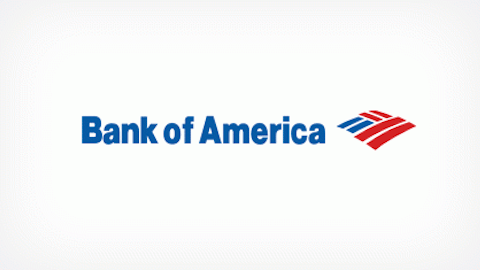Bank of America Corp (NYSE:BAC) is planning to cut 10% of its workforce, but UBS AG (NYSE:UBS) thinks it can do better. The Switzerland-based investment bank, which may be best known for its wealth management unit but also includes standard i-bank functions such as trading, has announced that it will cut costs by reducing its headcount by one-sixth, or 10,000 jobs. This comes after a quarter in which the company announced that operating income had fallen by 2% compared to both a year earlier and the second quarter of 2012, and a large increase in operating expenses had driven UBS into the red. This increase in operating expenses consisted primarily of a large goodwill impairment, but personnel and G&A costs had been up as well.
Wall Street analysts expect $1.44 per share in earnings for 2013, which implies a forward P/E of 11 for UBS. This isn’t a particularly high multiple, but it does depend on substantial improvements in the company’s expenses. Certainly if the company was able to reduce its workforce by a sixth- and, for purposes of simplicity, its personnel expenses at the same rate with no effect on any other aspect of the company’s business- it would save about 600 million Swiss francs pre-tax and probably place it at around a quarterly profit of 1 billion Swiss francs per quarter, or $4.3 billion for the year. At a market cap of $57 billion, that would be a P/E of 13 (implying that our rough estimate is for less income than the sell-side is expecting next year). Of course, UBS would probably lose some revenue in the process and have to pay severance, among other factors, and so we’d be even more wary of buying unless we can see some other way for the math to work out. UBS also trades at the book value of its equity, which is not particularly attractive for a bank in the current market environment.
Hedge funds had not been hot on UBS during the second quarter of the year. Billionaire David Shaw’s D.E. Shaw closed its previous position entirely (research more activity at D.E. Shaw). Renaissance Technologies reported owning about 380,000 shares at the end of June, but this was down 77% from its holdings at the beginning of April. Find more stocks that Renaissance Technologies was selling.
UBS is best compared to Credit Suisse Group AG (NYSE:CS). Credit Suisse also had a bad third quarter, though it remained profitable with net income decreasing 63% from the same period a year earlier off of a 12% decline in revenue. Credit Suisse is about half the size of UBS in terms of market capitalization, but appears to be in better shape with regards to its current business and its valuation looks better at a forward P/E of 8 and a P/B of 0.8. The forward earnings do depend on the company delivering higher numbers over the next year, but it looks a bit more reliable than UBS to us.
Citigroup Inc. (NYSE:C) and HSBC Holdings plc (NYSE:HBC) are two other similar companies; Bank of America is also a peer due to its trading operations and its Merrill Lynch wealth management unit. Citi trades at 8 times forward earnings estimates, even with Credit Suisse; it also saw a steep fall in its business last quarter, including an 88% drop in earnings. Its P/B is only 0.6, a substantial discount from book value, but we’d still be cautious due to the company’s recent troubles. Read our latest analysis of Citigroup. Bank of America looks similar on a book basis, priced at about half the book value of its equity, though its forward P/E is higher at 10. With its business performing poorly last quarter as well, we don’t think that it’s a buy right now. We also don’t like HSBC, which trades even with its book value and at the same forward P/E as Citigroup and Credit Suisse. It does pay a high dividend yield, so income investors might want to look at it more closely, but we don’t think that it’s worth considering on a value basis.
Even with its business doing poorly recently, Credit Suisse at least seems to be performing better than many other banks. With attractive earnings and book multiples, we think that it is a better buy than UBS- even a successful program of reducing headcount isn’t guaranteed to boost earnings by enough to justify the current price.






